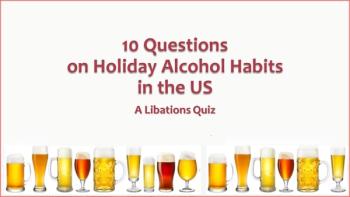
Single Screening Questions Gauge Alcohol, Drug Use
They may determine the presence of alcohol and drug dependence better than longer screening tools, according to a new study.
Single screening questions can help determine the presence of alcohol and drug dependence just as well as, and sometimes better than, longer screening tools, according to a new study.
“To date, most alcohol and drug screening tests have been too long, too complicated, or both. Even when screening tests could be done, tools to gauge severity were very extensive, further limiting the feasibility of doing anything about risky alcohol or drug use, which are both quite common,” lead author Richard Saitz, MD, Chair and Professor of Community Health Sciences at Boston University School of Public Health and Professor of Medicine at Boston University School of Medicine, told ConsultantLive.
Dr Saitz and colleagues analyzed responses from nearly 300 patients recruited from a primary care clinic. For alcohol use, the patients were asked how many times in the past year they had consumed 5 or more drinks in a day (for men), and 4 or more (for women). For other drug use, they were asked, “How many times in the past year have you used an illegal drug or used a prescription medication for nonmedical reasons?” The researchers compared the responses with alcohol and drug dependence reference standards.
The single alcohol screening question detected 88% of those with alcohol dependence, and the drug question detected 97% of those with drug dependence. The responses were rarely positive when the patients did not have dependence. These results with the single screening questions were similar to those yielded by longer screening tests, Dr Saitz said.
In a previous study, Dr Saitz and his colleagues found that the questions also worked well as tests for the full spectrum of unhealthy use, the first step in screening. This new study suggests the items work for both screening and assessment.
“Once a patient is identified, it is important to have an idea of severity to determine urgency and options,” said Dr Saitz. “For example, someone with a severe disorder may benefit from a shorter delay before receiving help. The physician may choose to treat with medications or refer the patient to a skilled counselor or mutual help group. For someone with a mild disorder or only risky use, brief counseling may be adequate, and might even be deferred to another visit when the patient and clinician have time to focus on it.”
Dr Saitz noted that alcohol is the third leading cause of preventable death in the United States, “mostly not attributable to people with obvious severe disorders, and instead attributable to drinking too much by people without alcoholism.”
“Systems should be in place to screen every patient, and then offer advice and counseling to those who are positive on these simple tests,” Dr Saitz continued. “We need to assess severity to see what sorts of interventions, if any, beyond brief counseling might be indicated.”
Drug use is less common, but the single screening question can be used in certain patient subsets and risk groups. Dr Saitz said, “Certainly, just as primary care physicians should always ask about the use of over-the-counter drugs and alternative medicines, they need to know if a patient is using illicit drugs to properly diagnose symptoms and prescribe appropriate medications, particularly psychoactive drugs or pain medications.”
The researchers published their
Newsletter
Enhance your clinical practice with the Patient Care newsletter, offering the latest evidence-based guidelines, diagnostic insights, and treatment strategies for primary care physicians.

































































































































